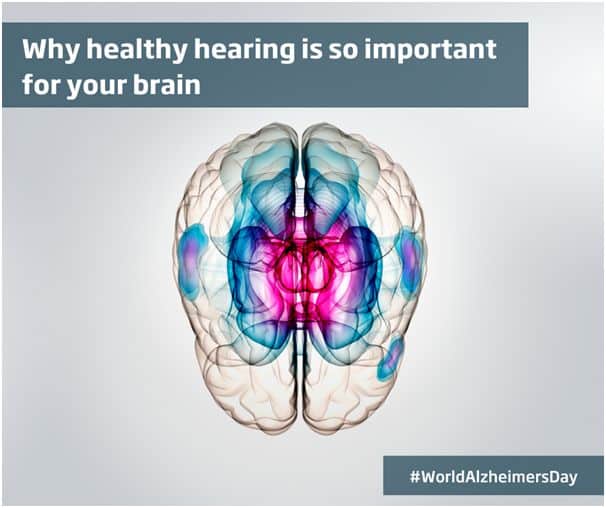 Healthy Hearing and Dementia – the risk factors and how to mitigate
Healthy Hearing and Dementia – the risk factors and how to mitigate
Did you know that more than a third of dementia cases can possibly be prevented or delayed?* The risk of developing dementia is partly influenced by lifestyle factors that can reduce or increase the risk. The good news is, that this means you can exercise your brain or make changes to your lifestyle to possibly prevent or at least delay dementia. Treating hearing loss is the best place to start.
Hearing loss is a risk factor for developing dementia in mid-life. Along with other lifestyle factors such as smoking, depression and physical inactivity, untreated hearing loss is what is known as a “modifiable risk factor”. Meaning that you can do something about it. In fact, untreated hearing loss is the single most important risk factor for dementia that you can do something about. This article explains how and why.
Exercising your brain is as important as any other body part
Just like you need to use the muscles in your legs to make sure you can continue to walk, you need to exercise your brain to keep it working well and help keep deterioration at bay. Your hearing plays a significant role in mental health.
You can exercise your brain in lots of ways, including brain teasers, solving crosswords and tackling math problems. These activities will not be enough if you have hearing loss and don’t treat it. Untreated hearing loss puts you at higher risk of accelerated mental decline due to increased likeliness of side effects such as withdrawal from social activities.
How hearing loss increases the risk of dementia
Not treating your hearing loss can ultimately lead to increased risk of dementia. This is just one reason to take it seriously. There are many ways hearing loss can increase the risk of dementia, but here are three examples:
- Hearing loss can lead to social isolation, which, due to the lack of brain stimulation through interactions has been shown to be a risk factor for dementia.
- Hearing loss can steal the energy required to create memories and think in trying to compensate for the information missing from sound caused by hearing loss.
- Hearing loss can accelerate brain atrophy and shrinkage.
An interesting article from Johns Hopkins University
In the future hearing aids may be part of effective treatment for dementia
Treating hearing loss may be more effective in reducing the risk of dementia than any other modifiable risk factor including quitting smoking (5%) or exercising more (3%)*. Hearing loss is the number one modifiable risk factor contributing to dementia. When we fully understand the relationship between hearing loss and dementia better, we may be able to get rid of the 9% increased risk for dementia that hearing loss comes with.
When sound enters your ears, it’s transported to your brain where it’s then processed. Your brain carries out four fundamental functions to help you make sense of sound:
- Your brain separates sound sources
- Your brain recognises what each sound is and makes sense of it
- Your brain orients according to the position of sounds, using both ears
- Your brain focuses on what’s important
All of this happens simultaneously but it’s very difficult for the brain of people with hearing loss to process. Good quality hearing aids support your brain by helping it to transform sound into meaning while preserving the sound around you.
Take the first step to curb dementia
The first step away from dementia is to take some of the precautions to decrease the risk. You can quit smoking and exercise more, but as we’ve outlined in this article the best step you can take is to treat your hearing loss. Do you suspect that you may suffer a degree of hearing loss? Why not take our simple Online Hearing Check and find out?
*Livingston et al, 2017
